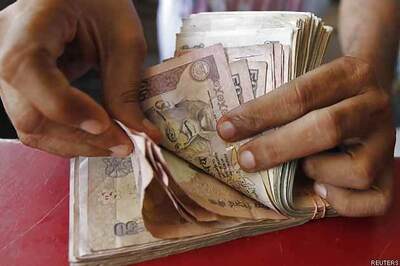
views
The IMF has recommended Pakistan several measures such as increasing taxes, reducing tax slabs, and eliminating tax exemption on the contribution of private employers to pensioners, to yield additional revenues for the cash-strapped government, a media report said on Saturday.
The International Monetary Fund (IMF) has estimated that if the recommendations on Personal Income Tax were fully implemented, it could yield additional revenues of 0.5 per cent of the GDP, equivalent to Pakistani Rs 500 billion on an annual basis, The News International reported.
The IMF’s recommendations to the Federal Board of Revenue (FBR) would double the tax burden for salaried and non-salaried classes and would impact the middle and upper middle-income groups if accepted, the report said.
The FBR has so far collected Pakistani Rs 215 billion from the salaried class in the first eight months (July-February) of the current fiscal year.
It is estimated that the FBR could fetch approximately Pakistani Rs 300 billion from the salaried class, and the IMF’s recommendation on personal income tax could bring additional revenues of Pakistani Rs 500 billion from both salaried and non-salaried classes, the report said.
The Washington-based lender, who has expressed willingness to work with the new government in Pakistan following a fractured poll verdict, has also recommended lowering the income threshold for the higher rates slabs.
The IMF has asked the FBR to review the Second Schedule and Chapter III of the Income Tax Ordinance (ITO) to eliminate preferential treatment to employees in specific sectors, tax credit for investment in shares, deduction for mortgage payments, tax deductions for full-time teachers and researchers and maintain the zero rate threshold at the same levels if it is not possible to reduce it, the paper reported.
Pakistan is heavily dependent on the IMF and currently implementing a short-term USD 3 billion agreement.
The global lender has already provided two tranches of loan and the last tranche of USD 1.2 billion is expected by the end of March or early April.
According to experts, the new government after taking office would have to enter into fresh talks with the IMF to get a new loan.
Earlier, the IMF’s review mission was scheduled to visit the cash-strapped country in the first week of February, but the delegation refused to visit on the eve of the general elections.


















Comments
0 comment